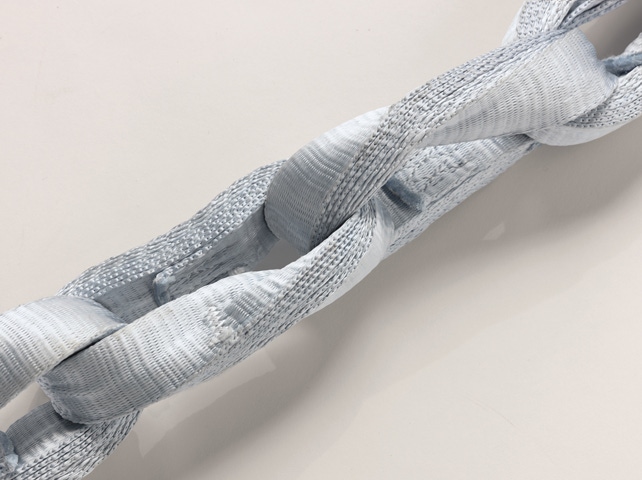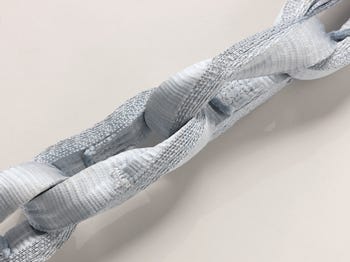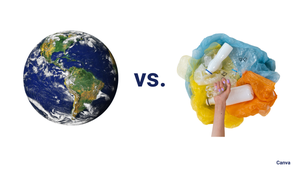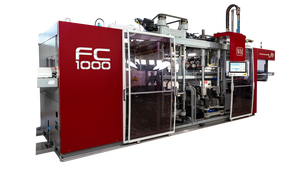In collaboration with DSM Dyneema (Urmond, Netherlands), Norway-based Load Solutions AS (Rådal), a global provider of lashing and loading systems for the transport industry, will officially launch its innovative lightweight synthetic Tycan chain at the upcoming international trade show BreakBulk Europe 2015, May 18-21, in Antwerp, Belgium. Available on the market since January of this year, the new chain has been hailed for its outstanding performance by users across a wide range of industries, from shipping, mining and oil and gas to commercial fishing.
May 13, 2015

In collaboration with DSM Dyneema (Urmond, Netherlands), Norway-based Load Solutions AS (Rådal), a global provider of lashing and loading systems for the transport industry, will officially launch its innovative lightweight synthetic Tycan chain at the upcoming international trade show BreakBulk Europe 2015, May 18-21, in Antwerp, Belgium. Available on the market since January of this year, the new chain has been hailed for its outstanding performance by users across a wide range of industries, from shipping, mining and oil and gas to commercial fishing. Already, Load Solutions is seeing very sizable new orders and reorders from initial customers. Commercial field trials are ongoing globally in various industrial branches to further expand the commercial market opportunities for Tycan.
 Tycan chain is a non-metallic link chain made with Dyneema, the world's strongest fiber. It has been developed to replace the steel chains that are traditionally used to lash and secure project cargo during transportation. Dyneema is a patent-protected ultra-high molecular weight polyethylene (UHMWPE) fiber made by DSM Dyneema. The material is 15 times stronger than steel on a weight-to-weight basis and up to 40% stronger than aramid materials.
Tycan chain is a non-metallic link chain made with Dyneema, the world's strongest fiber. It has been developed to replace the steel chains that are traditionally used to lash and secure project cargo during transportation. Dyneema is a patent-protected ultra-high molecular weight polyethylene (UHMWPE) fiber made by DSM Dyneema. The material is 15 times stronger than steel on a weight-to-weight basis and up to 40% stronger than aramid materials.
Tycan chain weighs up to eight times less than its conventional metal counterparts and is more than 50 times less noisy in use. The chain has been shown to provide impressive productivity gains and savings in cost throughout the entire transport process. Outsize cargo, such as electricity pylons or windmill turbine blades, can weigh almost as much as a truck's maximum payload capacity. Using Tycan chain significantly reduces dead weight, which means trucks can safely carry more cargo while remaining within insurable limits.
Alex Rock, Manager Marketing and Sales, at Load Solutions: "For multi-unit logistics companies, every bit of cargo means euros. We have developed a weight-saving calculator, available on our website, that allows customers to calculate exactly how much weight they can save by using Tycan chain."
The lighter weight of Tycan chain translates in many cases to lower labor costs--fewer simultaneous hands needed, more efficient securing processes--and on ships to shorter port stay times and, hence, lower costs. Additional significant savings can also be realized by the substantially lower claim costs for damaged freight and equipment.
Alex Rock: "There is a major cost benefit for painted surface and sensitive cargo. Using Tycan chain to lash this type of cargo eliminates the dents and scratches often caused by lashing with steel chains, and can very significantly lower the cost burden of damage claims borne by shipping companies."
He added: "And, unlike steel chains, which are phenomenally noisy when dropped and can cause damage when dragged across decks, Tycan chain is far quieter in use, enabling better communication and promoting safer and more user-friendly working conditions."
About the Author(s)
You May Also Like


